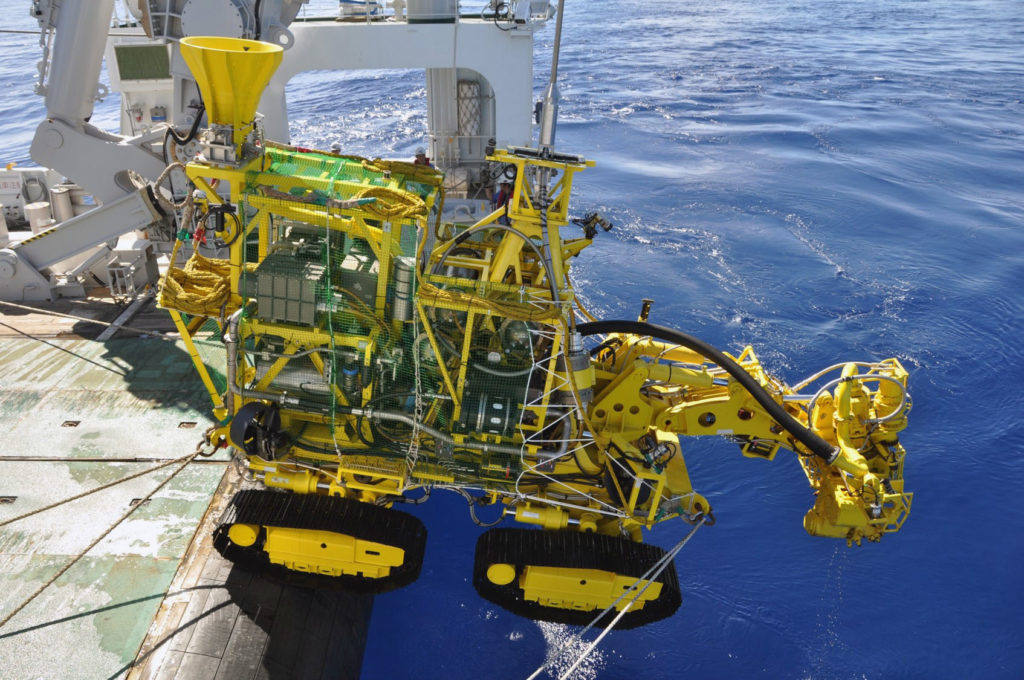French automaker Renault SA has backed a moratorium on deep-sea mining, the company told Reuters on Wednesday, committing to exclude seabed metals from its supply chain in a blow to the nascent industry.
In October, French President Emmanuel Macron identified deep seabed exploration as an investment priority for France, highlighting the potential of gaining access to “rare metals” as well as a better understanding of marine ecosystems. The French government is the top shareholder of Renault, holding 15.01 per cent.
The decision by Renault – one of France’s two leading carmakers – adds to pressure on the fledgling deep-sea mining industry which aims to extract battery metals like cobalt, nickel, and manganese from potato-sized nodules on the seabed.
Companies that hold exploration licences on the seabed, including The Metals Company, GSR and UK Seabed Resources – a subsidiary of Lockheed Martin’s UK-based arm – hope to eventually sell seabed metals to carmakers.
A Renault spokesperson said its call for a moratorium was aligned with the government’s stance because France “plans to invest in seabed exploration in order to identify potential solutions for sustainable extraction”.
Macron had stopped short of backing seabed mining, with a nod to the controversy around the nascent industry which critics say could wipe out as-yet-undiscovered species.
“I can already hear the debate coming, I am not talking about exploitation for the moment, I am talking about exploration,” he said in a speech in October to launch a “France 2030” investment plan.
France holds an exploration contract, through the Institut Francais de Recherche pour l’Exploitation de la Mer (IFREMER), for an area of 75,000 square kilometres in the Clarion-Clipperton Zone, a vast stretch of seabed in the North Pacific rich in polymetallic nodules.
The French government and IFREMER did not immediately respond to requests for comment.
Renault’s logo appeared on a deep-sea mining campaign website listing the companies that have backed the moratorium, including Google, Samsung SDI and BMW Group.
A spokesperson for Renault said the logo was added on Tuesday, and the decision was taken as part of the carmaker’s sustainability strategy.
U.S. electric carmaker Rivian also joined the call for a moratorium on Wednesday.
“Rivian shares the Deep Sea Conservation Coalition’s goal of protecting our oceans,” the company told Reuters in an email.
Companies that have signed the moratorium commit to excluding such metals from their supply chains and not financing deep seabed mining.
The moratorium calls for a clear demonstration, before any deep-sea mining occurs, that it can be managed in a way that ensures the protection of marine habitats.
“Governments should listen to these companies and agree on a moratorium to allow for independent science and invest in circular economy solutions to take the pressure off our ocean,” Jessica Battle, lead at WWF’s No Deep Seabed Mining initiative, said.
The International Seabed Authority (ISA), a United Nations body, is drawing up regulations governing seabed mining in the high seas – areas outside any national jurisdiction.
Negotiations had been disrupted by the global pandemic but in-person meetings of the ISA Council and ISA Assembly took place in December. The ISA Council – the executive organ of the ISA – will next meet from March 21 to April 1.







Click here to change your cookie preferences